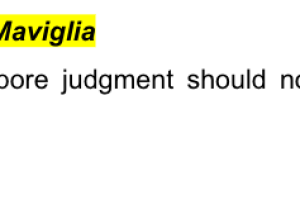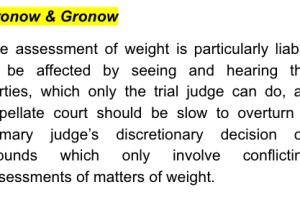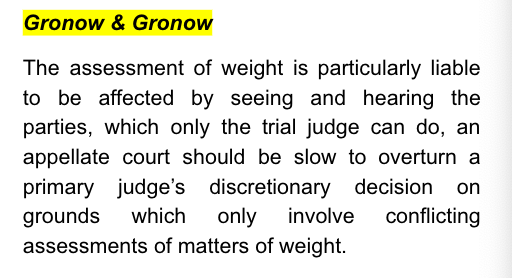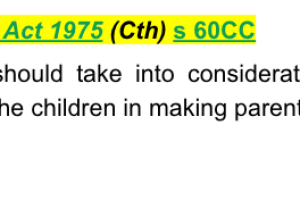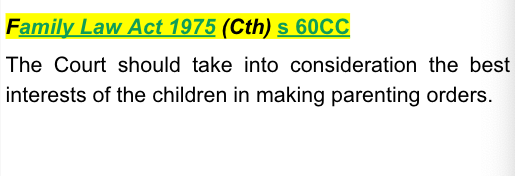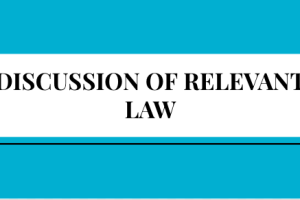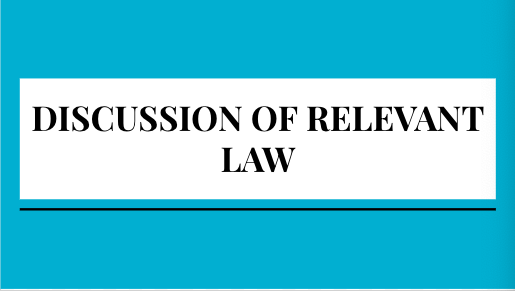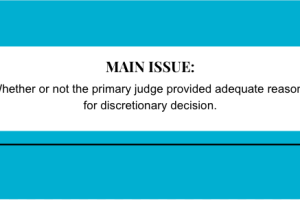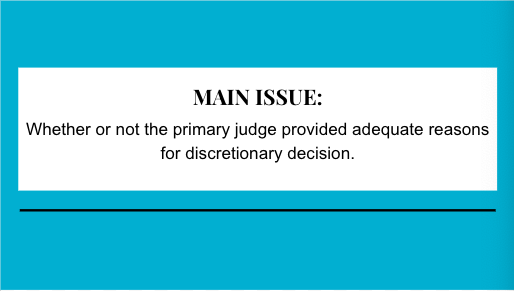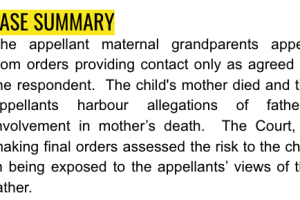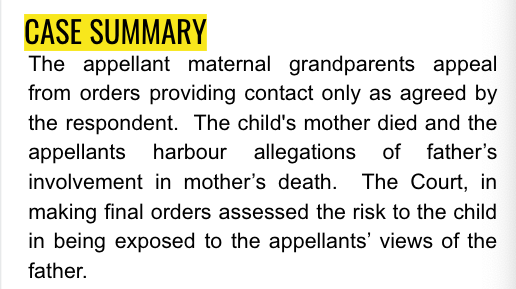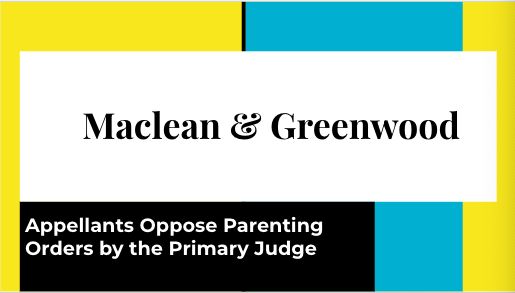- · 4784 friends
Appellants Oppose Parenting Orders by the Primary Judge

Maclean & Greenwood [2022] FedCFamC1A 200 (1 December 2022)
The appellant maternal grandparents appeal from orders providing contact only as agreed by the respondent. The child's mother died and the appellants harbour allegations of father’s involvement in mother’s death. The Court, in making final orders assessed the risk to the child in being exposed to the appellants’ views of the father.

Facts
The child’s mother (the daughter of the appellants) died early in the morning on a day in 2020 as a result of heart failure due to an illness. The mother had lived with this condition for a long time. At the time she died, she was sleeping in her bed with the child, who was then only six years old. Whilst the respondent father was present in the house at the time the mother died, he was not sharing a room with her and did not realise that she had died until later that morning. The mother and father had separated and, at the time of the mother’s death, it appears they were attempting to reconcile.
The appellants are convinced that the father played “a role” in the mother’s death. At the trial, however, they were unable to provide particulars of what they alleged against the father. At its highest, their case appears to be that the father was in some way negligent in failing to obtain assistance for the mother, as they contend the child had said that his mother was “wobbly on her feet the night before she died” (at [59]). There was no evidence that the father knew the mother was in need of assistance that day.
There was no forensic evidence to indicate that the mother’s death was anything other than a tragic cardiac arrest during the night or early morning. The appellants are unable to accept that the father is not in some way blame worthy, despite the coroner’s report (following a post mortem examination of the mother’s body) and a police investigation into the death. For example, at the trial, the appellant grandmother said that she now wished to seek a toxicology report with respect to the mother, however no such report was produced. Following the mother’s death in January 2020, the child lived with the appellant grandparents until interim orders were made on 23 June 2021 placing the child in the care of the father and limiting the time the child spent with the appellants to only telephone time.
The primary judge found that the appellants had been speaking to the child about the relationship between the mother and father, including telling the child that his parents used to fight a lot and that he could see his father in a “safe house”, however the child never made an allegation to the family consultant that he had seen his parents fighting. The primary judge noted that the single expert opined that the appellants’ conduct may be a “reaction to the death of [the mother]”, their daughter, and that no other explanation seems apparent. The primary judge was satisfied that the father would permit the child to spend time with the appellants if he were satisfied that the appellants would not withhold the child and “that they would not speak to the child on issues surrounding the mother’s death”. The primary judge concluded that the appellants would be unable to control what they say to the child and that it would be “an unacceptable risk to the development” of the child.

Issue
Whether or not the primary judge provided adequate reasons for discretionary decision.

Applicable law
Family Law Act 1975 (Cth) s 60CC - provides that the Court should take into consideration the best interests of the children in making parenting orders.
Analysis
The underlying principle is founded upon recognition of a number of important considerations: first, that ex tempore reasons are given when the evidence is fresh in the judge’s mind; secondly, recognising that the expression of oral reasons (particularly by a busy trial judge) will not be in a form nearly as refined or detailed as reasons in written form that have been carefully structured and revised; thirdly, that ex tempore judgments meet the interests of litigants in having a decision as soon as possible; and fourthly, noting that the purpose of reasons as a necessary element of the exercise of judicial power is to provide an adequate explanation of the basis of the decision to the litigants, not a jurisprudential essay or royal commission report.
It is apparent that the primary judge did consider the nature of the relationship between the child and his maternal grandparents. It is also apparent that the importance of that relationship was not in issue at the hearing, rather, the issue was the impact of the appellants’ unfounded allegation that the father was involved in the mother’s death. There was no evidence of any commitment to or arrangements for counselling of the appellants in the future. On the evidence and findings as to the appellants’ conduct, there was simply no evidence upon which the primary judge could conclude that the risks could be “managed” in the manner that the single expert considered sufficient.
Conclusion
The appeal be dismissed. The appellants pay the respondent’s costs fixed in the sum of $13,388.90.


